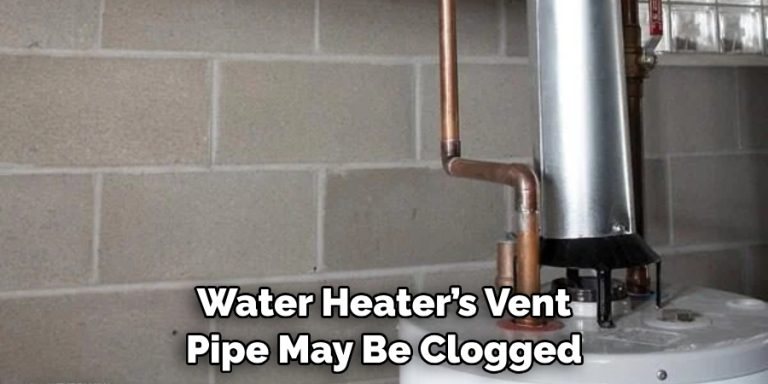Overview:
A water heater’s temperature sensor plays a crucial role in maintaining optimal water temperature. However, failure of this sensor can result in scalding hot water or insufficiently heated water. Understanding the causes and solutions for temperature sensor failure is essential for efficient water heater operation.

Image: www.safetywish.com
Causes of Temperature Sensor Failure:
Multiple factors can contribute to temperature sensor failure in water heaters:
- Mineral Buildup: Over time, deposits of mineral scale can accumulate on the sensor, preventing accurate temperature readings.
- Mechanical Failure: The sensor may become physically damaged or worn over time, leading to malfunction.
- Wiring Issues: Loose connections or faulty wires can disrupt signal transmission from the sensor to the water heater’s control unit.
- Power Fluctuations: Sudden surges or dips in electrical power can damage the sensor or its circuitry.
Symptoms of Temperature Sensor Failure:
Temperature sensor failure can manifest in several ways:
- Inaccurate Water Temperature: Water may become scalding hot or insufficiently heated.
- Error Codes: Some water heaters display error codes to indicate temperature sensor issues.
- Fluctuating Water Temperature: The water temperature may rise and fall erratically.
- Leaking Water: In severe cases, sensor failure can lead to water leaks from the tank.
Troubleshooting Temperature Sensor Failure:
Addressing temperature sensor failure requires a systematic troubleshooting approach:
- Confirm the Sensor’s Failure: Use a multimeter to test the continuity of the sensor. If no continuity is detected, it indicates a faulty sensor.
- Inspect the Wiring: Check the wiring connections to the sensor. Ensure there are no loose or damaged wires.
- Remove Mineral Deposits: If mineral buildup is suspected, soak the sensor in a descaling solution and gently brush away the residue.
- Replace the Sensor: If other troubleshooting steps fail, the sensor may need to be replaced with a new one.
- Contact a Professional: If sensor replacement does not resolve the issue, it’s advisable to consult a qualified plumber or electrician for further diagnostics and repairs.

Image: www.youtube.com
Tips for Preventing Temperature Sensor Failure:
To minimize the risk of temperature sensor failure, consider the following tips:
- Regular Tank Maintenance: Schedule periodic tank cleaning to remove sediment and mineral buildup.
- Proper Water Intake: Ensure the cold water supply to the heater is free of debris or particles that could clog the sensor.
- Power Protection: Utilize a surge protector to safeguard the water heater from voltage fluctuations.
- Professional Installation: Have the water heater initially installed and maintained by a certified professional to ensure proper wiring and sensor performance.
How To Fix Temperature Sensor Failure Water Heater
Frequently Asked Questions (FAQs):
Below are some frequently asked questions regarding temperature sensor failure in water heaters:
Q: What is the lifespan of a water heater temperature sensor?
A: Typically, temperature sensors in water heaters have a lifespan of 5-10 years, depending on various factors.
Q: Can temperature sensor failure cause a drop in water pressure?
A: Usually, temperature sensor failure does not directly affect water pressure unless the resulting temperature fluctuations cause excessive steam buildup, which may impact flow rate.
Q: What safety precautions should be taken when troubleshooting a water heater temperature sensor?
A: Always turn off the power supply to the water heater before handling any electrical components. Ensure the water has cooled down sufficiently before attempting any repairs.
Q: Are all water heater temperature sensors interchangeable?
A: No, water heater temperature sensors vary in size, shape, and resistance values. It’s crucial to use a sensor compatible with the specific water heater model.
Q: How can I reset the temperature sensor on my water heater?
A: Most water heater temperature sensors cannot be reset. If the sensor is malfunctioning, it usually requires replacement.
Conclusion:
Temperature sensor failure in a water heater can be a frustrating issue, but it’s one that can be effectively resolved by identifying the underlying cause. By understanding the symptoms, troubleshooting steps, and preventive measures, homeowners can ensure the reliable and efficient operation of their water heating systems. If you encounter persistent problems with the temperature sensor, it’s always advisable to seek assistance from a qualified technician for accurate diagnosis and repairs. Please let us know if you have any further questions on this topic. We are always here to help.